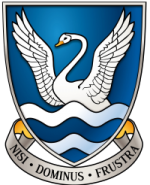 Double Award Science
Double Award Science
Aims
To encourage the pupils to
- develop their understanding of the relationships between hypotheses, evidence, theories and explanations;
- develop and apply their observational, practical, modelling, enquiry and problem-solving skills and understanding
- in laboratory, field and other learning environments; and
- develop their ability to evaluate claims based on science through critical analysis of the methodology, evidence and conclusions both qualitatively and quantitatively.
Subject Overview
GCSE Double Award Science qualification provides a broad, coherent and practical course that develops confidence in and a positive view of science. It encourages you to appreciate the value of science in your life and in the wider world around you.
We follow the CCEA Double Award Science specification, studying:
The specification has seven units:
Biology Unit B1: Cells, Living Processes and Biodiversity
Students learn about cells, photosynthesis, nutrition and health, enzymes, breathing and respiration, the nervous system and hormones, and ecological relationships.
Biology Unit B2: Body Systems, Genetics, Microorganisms and Health
Students focus on osmosis and plant transport, the circulatory system, reproduction, fertility and contraception, genome, chromosomes, genes and DNA, cell division and genetics, variation and selection, microorganisms, defence mechanisms and cancer.
Chemistry Unit C1: Structures, Trends, Chemical Reactions, Quantitative Chemistry and Analysis
Students cover atomic structure, bonding, structures, nanoparticles, symbols, formulae and equations, the Periodic Table, quantitative chemistry, acids, bases and salts, and chemical analysis. Students begin to develop understanding that all chemical elements are made up of atoms that consist of subatomic particles, and they use the arrangement of the electrons to explain what happens when elements react.
Chemistry Unit C2: Further Chemical Reactions, Rates and Equilibrium, Calculations and Organic Chemistry
In this unit, students cover the reactivity series of metals, redox reactions, rates of reaction, equilibrium, organic chemistry, quantitative chemistry, electrochemistry, energy changes and gas chemistry.
Physics Unit P1: Motion, Force, Moments, Energy, Density, Kinetic Theory, Radioactivity, Nuclear Fission and Fusion
Students investigate motion, including its graphical treatment, forces and applications such as moments and pressure. Students explore energy, power and heat transfer, along with density and kinetic theory to explain density.
Physics Unit P2: Waves, Light, Electricity, Magnetism, Electromagnetism and Space Physics
Students explore waves and reflection and refraction of light, including lenses. They investigate current and domestic electricity, which is then extended to magnetism and electromagnetism. Students investigate the Earth, the Solar System and the Universe and also the life cycle of stars. At the end of this unit, students learn about the Big Bang and evidence for this theory.
Unit 7: Practical Skills
Units 1 and 2 in each discipline include a number of practical tasks that students carry out during the course.
Career Opportunities
Double Award Science is accepted as a relevant Science GCSE for careers such as primary teaching, nursing, midwifery and others. It provides a knowledge of all three science subjects and as such is good preparation for A Level Life and Health Science at A Level.
Staffing
Staffing varies each year but will have one member from each of the three departments; Biology, Chemistry and Physics.
2020/21:
Dr Larmour
Dr Spence
Mrs Keown (temporary)
Subject Overview
Physics is the study of how the world works and how this knowledge can be applied to improve our everyday lives. Physics is everywhere from mobile phones, hair straighteners and shop scanners to solar panels, airplanes and satellites. Many of the everyday devices we take for granted have their foundations in Physics. Physics continues to improve our world and look for solutions to our problems.
At Glenlola Collegiate School all pupils study Physics as an individual Science from Year 10. Pupils can then choose to continue the study of Physics at GCSE, AS and A Level.
Key Stage 3
In Year 10 pupils study Physics for 1 hour each week. The Year 10 syllabus aims to give pupils an insight into what studying Physics at GCSE will be like and how Physics can be applied to everyday situations. Pupils study topics including Measurement, Pressure, Static Electricity and Moments.
Key Stage 4
During the GCSE course the pupils will develop a knowledge and understanding of physics and how physics has an influence on the world we live in. It encourages the development of practical skills, logical thinking, problem solving and mathematical skills.
We follow the CCEA Physics specification, studying:
- Unit 1: Motion, Forces, Moments, Energy, Kinetic Theory, Radioactivity, Nuclear Fission and Fusion.
- Unit 2: Waves, Light, Electricity, Magnetism, Electromagnetism and Space Physics
- Unit 3: Practical Skills
Key Stage 5
At Key Stage 5 pupils continue to develop an appreciation of the value of physics in their everyday lives and in the world around us and develop their confidence in exploring hypotheses, theories and explanations. As well as deepening their understanding a knowledge the course also develops many desirable and transferable skills including: observational skills, accurate practical skills, application of mathematics, problem solving and logical thinking.
We follow the CCEA Physics specification, studying:
AS LEVEL
- AS 1: Forces, Energy and Electricity
- AS2: Waves, Photons and Astronomy
- AS 3: Practical Techniques and Data Analysis
A2 LEVEL
- A2 1: Deformation of Solids, Thermal Physics, Circular Motion, Oscillations and Atomic and Nuclear Physics
- A2 2: Fields, Capacitors and Particle Physics
- A2 3: Practical Skills and Data Analysis
http://www.rewardinglearning.org.uk/microsites/physics/
Career Opportunities
Physics is a highly regarded subject and the study of this subject develops many skills which are sought after by higher and further education and employers. An A Level in Physics opens doors in a wide range of career options including:
- Science careers
- Engineering of all disciplines
- Medicine
- Medical Physics
- Research
- Teaching
- Dentistry
- Architecture
- Veterinary Science
- Computer Software Programming
- Forensic Science
- Finance and many more.




